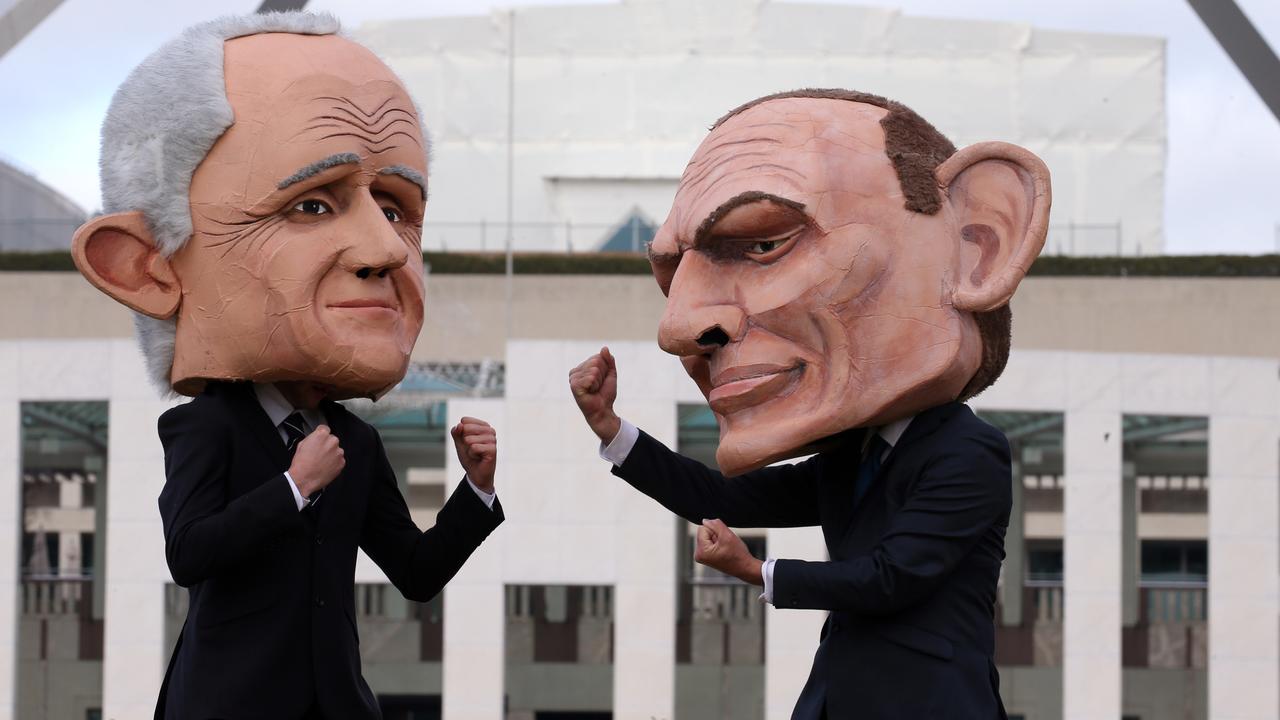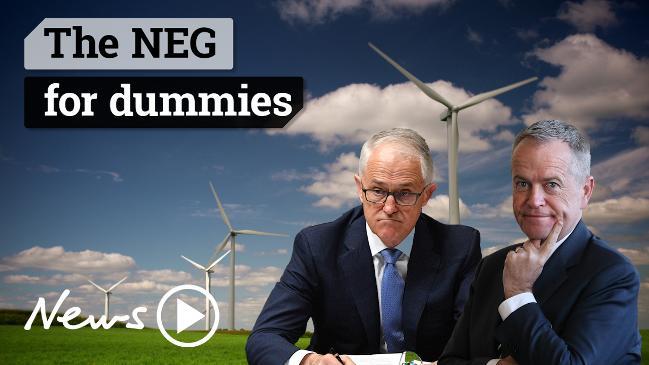New leadership tussle won’t be a re-run of 2009
LAST time Tony Abbott took on Malcolm Turnbull, he wiped the floor with him. This time, the outcome may be very different.

ANALYSIS
THE sequel is rarely as good as the original, and that is a big concern for coalition backbenchers watching renewed leadership tension.
These exasperated foot soldiers and several of their front bench colleagues are dreading the prospect of a re-run of 2009 when the Liberal leadership of Malcolm Turnbull collapsed under the weight of climate change scepticism.
The 18 script looks familiar, the theme is essentially the same, the lead characters are the same.
But it’s common wisdom that sequels usually disappoint.
The replacement of Malcolm Turnbull by Tony Abbott — or an Abbott-friendly substitute — in 2018 might not lead to an election victory over Labor as it did in 2009.
And Mr Abbott, who belted Labor’s Emission Trading Scheme until his hyperpartisan aggression helped make him Prime Minister in 2013, might not get the same outcome from thumping Turnbull’s National Energy Guarantee.
Labor under Bill Shorten doesn’t have the instability of the Kevin Rudd and Julia Gillard era, and would know how to exploit the infighting in the Liberal Party.
The personal bitterness between Mr Abbott and Mr Turnbull has been on constant display to coalition MPs, and has become as tiresome to them as the demands they take sides.
Also draining is the prospect of a replay of nine years ago.
In 2009 the ignition issue was then opposition leader Turnbull’s support for Labor’s ETS. He wanted the coalition to vote for it. Mr Abbott, who discounted the science of climate change, strongly opposed the move.
The revolt began with resignations from ministries of five senior Liberals, including the formidable Nick Minchin.
Three of them are no longer in parliament. Of the other two, Senator Eric Abetz doesn’t have a senior role to quit, and Tony Smith is quite happy staying Speaker.
This time round the rebel cast is not as elevated in stature — junior minister Keith Pitt has said he might resign from the ministry and North Queensland MP George Christiansen has again threatened to cross the floor to vote against elements of the NEG.
It’s not the same. It’s like Clint Eastwood and Meryl Streep were in the original cast but were replaced by two actors from a minor repertory company for the new version.

And the issues seem familiar but are not as clear-cut as in 2009.
Mr Abbott is leading the charge against imposing emission targets defined under the Paris Agreement.
However, this agreement was approved by then prime minister Abbott, although he now effectively says he didn’t know what he was doing because bureaucrats had misled him.
And business and industry are pleading for the NEG to be passed, in a way they most certainly were not begging for the ETS to go through.
The accumulation of confusion and changing arguments means many coalition MPs just want NEG peace — effectively saying, “Pass it and shut up.” And business agrees.
Prime Minister Turnbull has other problem areas, such as the fate of his big corporate tax cut plans, and reaction to a little-known Barrier Reef charity suddenly receiving somewhere just south of half a billion dollars in a government grant without asking for it.
These are serious matters, and as long as a replay of 2009 looms, Mr Turnbull will have greater difficulty dealing with them.





